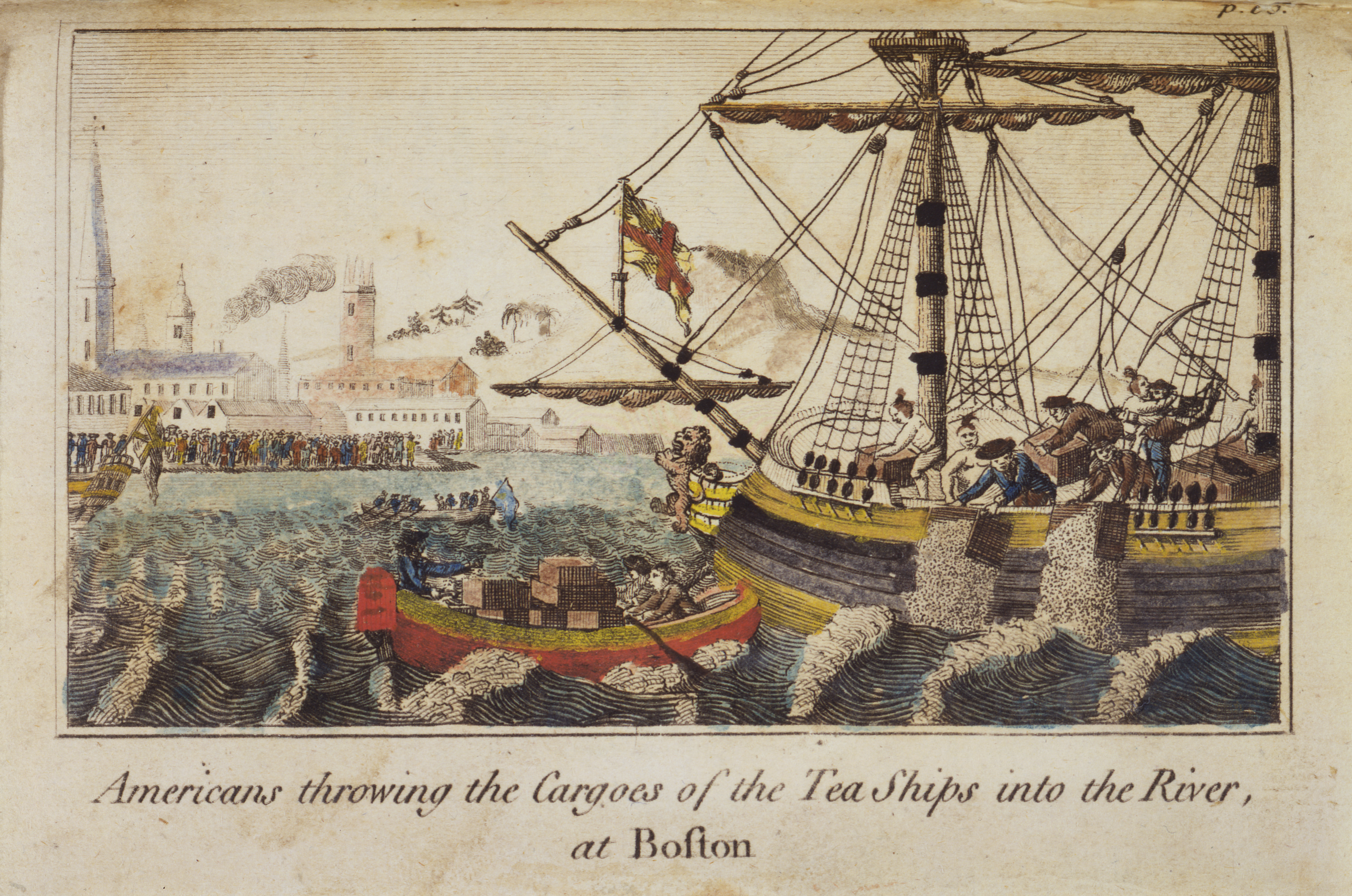How a revolution is born
Boston Tea Party

Sons of Liberty throwing tea overboard from East India Company ships, depicted in W.D. Cooper, The History of North America (London: E. Newbury, 1789) and from WikiCommons.
Emerging victorious from the Seven Years' War (1756-1763), the Kingdom of Great Britain found itself in financial difficulty due to the substantial resources invested in fighting the French, particularly in the North American colonies. Consequently, the British government decided to impose duties and taxes on the American colonists, who were theoretically British citizens but had no representation in the London Parliament. This gave rise to the famous slogan "no taxation without representation," which quickly became the rallying cry for the colonists' opposition to the new measures imposed by London. After the Stamp Act (1765), which levied a tax on documents, newspapers, and letters—met with violent resistance by the colonists—the final straw came in 1773 when London decided to target a highly demanded resource in the colonies: tea.
The East India Company, which owned the lands in India where tea was cultivated, had been legally obliged to sell its tea to London wholesalers, who would then resell it in the North American colonies. As a result, due to price markups, tea became extremely expensive for Americans, who had begun consuming the much cheaper Dutch tea. It was partly due to the financial struggles of the Company that Parliament passed the Tea Act, allowing tea to be sold directly in the American colonies without London intermediaries. The protest was particularly hostile in Boston, where in December 1773, a group of Sons of Liberty—one of the earliest revolutionary secret groups—disguised as Native Americans boarded the Company's ships docked in the harbor and dumped the valuable Indian tea into the sea. This event went down in history as the Boston Tea Party, the incident that most clearly expressed the American colonists' discontent with the British. The situation soon escalated into a full-blown revolution (or War of Independence), which broke out in 1776 with the Declaration of Independence.
2025-08-30
Salvatore Ciccarello
